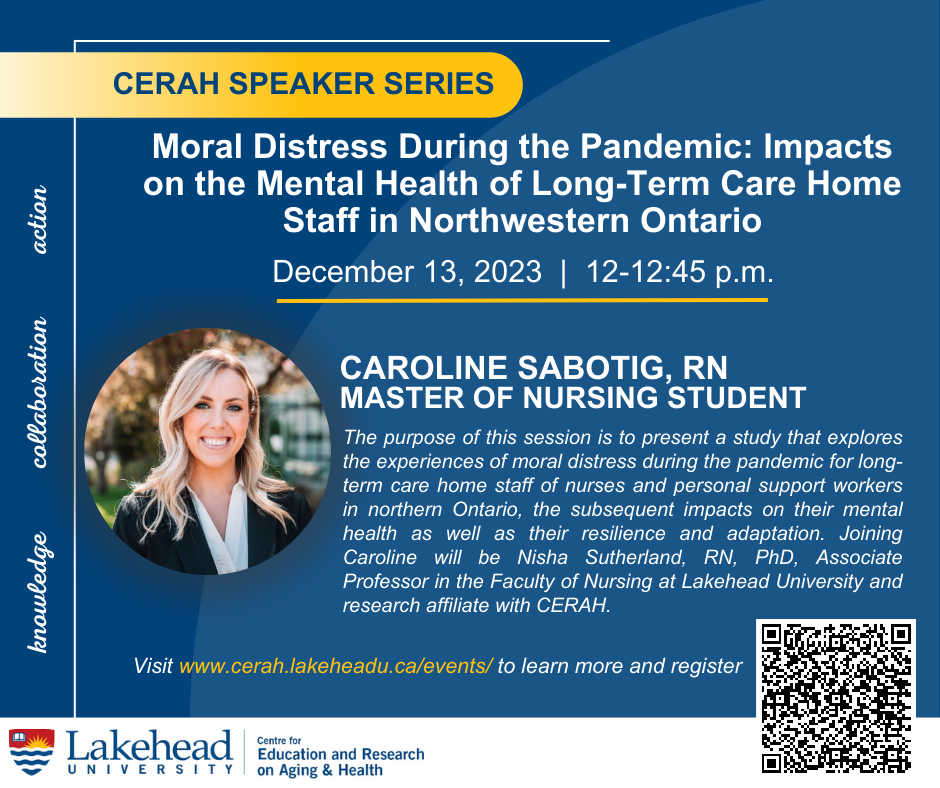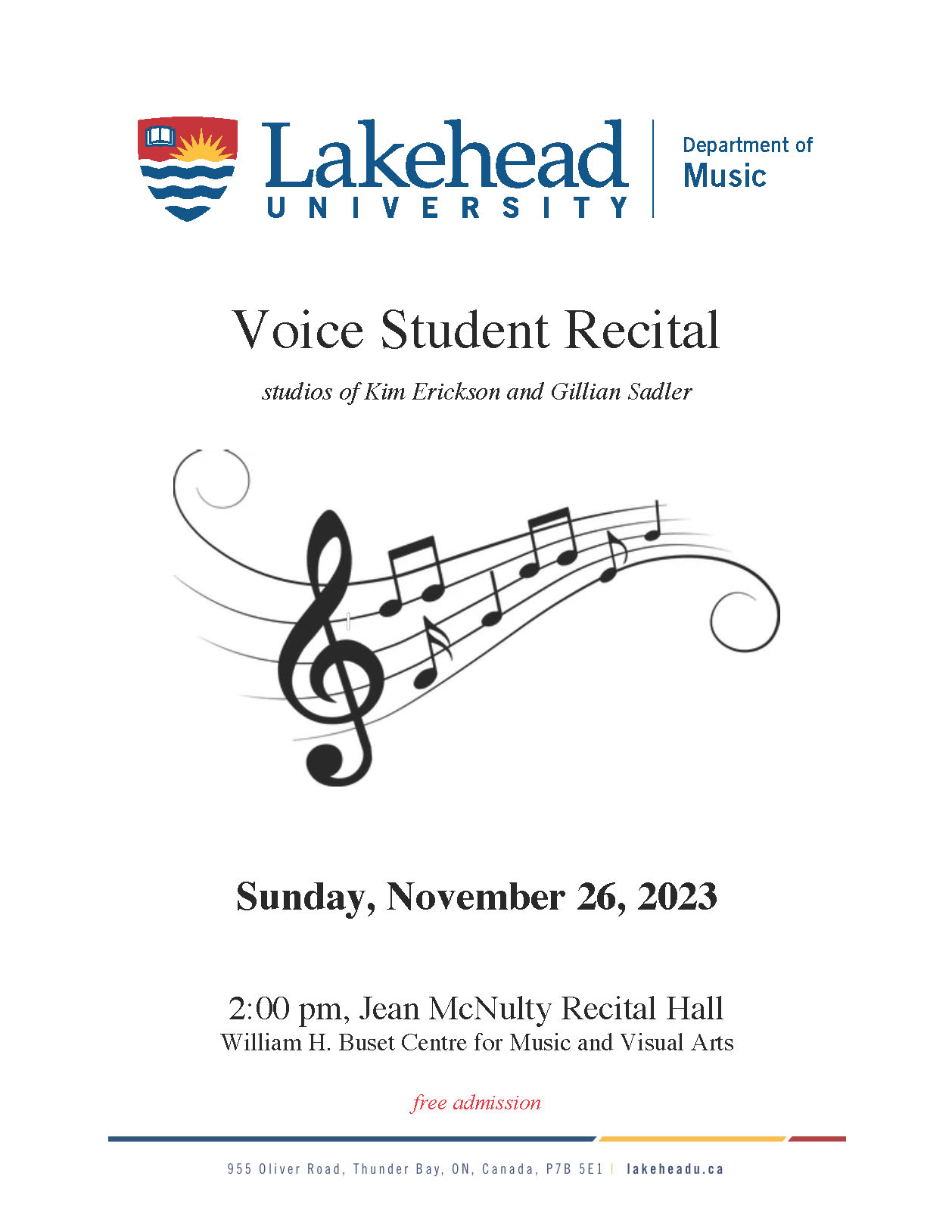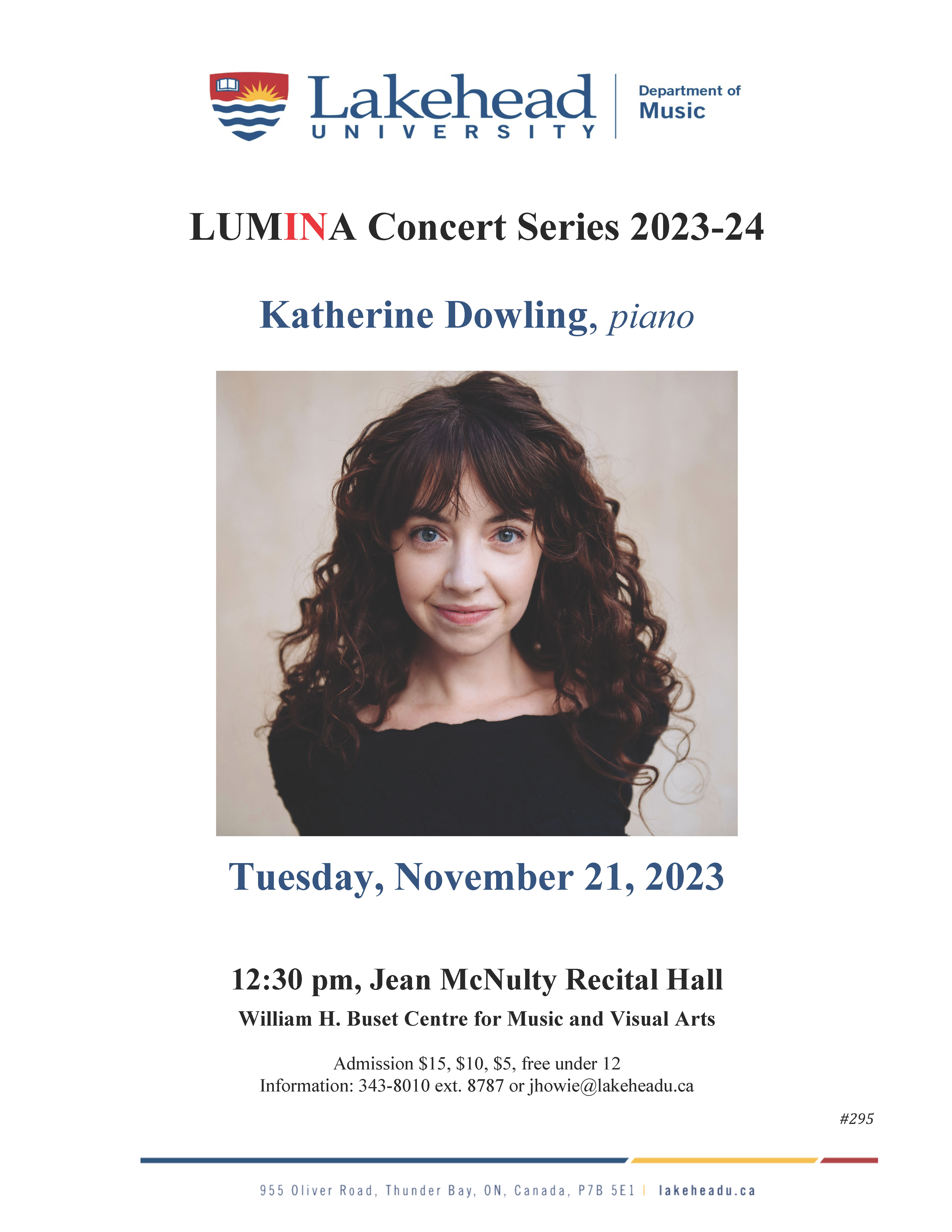CERAH Speaker Series - Moral Distress During the Pandemic: Impacts on the Mental Health of Long-Term Care Home Staff in NWO

Please join Caroline Sabotig, RN, and Master of Nursing Student as she presents a study that explores the experiences of moral distress during the pandemic for long-term care home staff of nurses and personal support workers in northern Ontario, the subsequent impacts on their mental health as well as their resilience and adaptation.
This session will outline the importance of the study, the research design, preliminary findings and potential implications. Joining Caroline will be Nisha Sutherland, RN, PhD, Associate Professor in the Faculty of Nursing at Lakehead University and research affiliate with CERAH. To learn more and register please visit: https://cerah.lakeheadu.ca/events/




